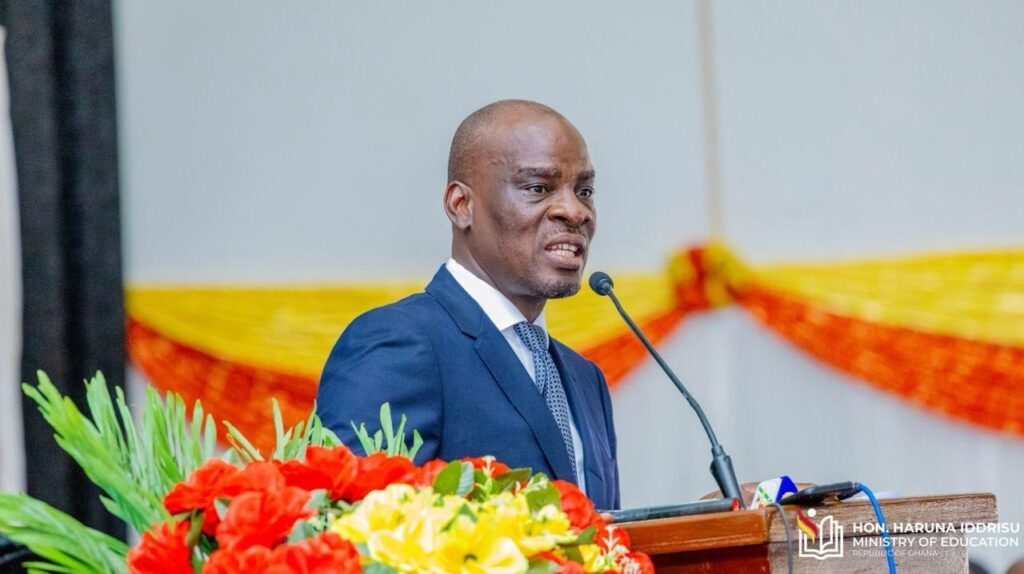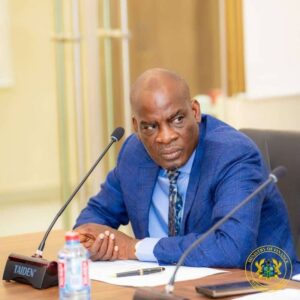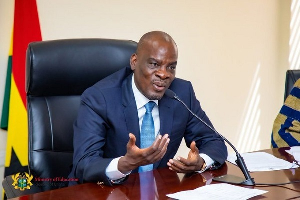The Minister for Education, Haruna Iddrisu, has announced plans to amend the Ghana Tertiary Education Commission (GTEC) Act, 2020 (Act 1023), to extend the deadline for tertiary institutions to secure Presidential Charters. The decision follows widespread concern among education stakeholders about the potential closure of several universities that have not yet met the charter requirements.
In February 2024, GTEC issued a directive giving all tertiary institutions a six-month ultimatum to obtain their charters or risk closure. The move was part of the Commission’s effort to regulate degree-awarding powers and ensure institutional quality, but it quickly sparked debate across the academic community. Many questioned the feasibility of the timeline and raised fears about its impact on students and the credibility of university certificates.
Appearing before the Public Accounts Committee (PAC) of Parliament, Minister Haruna Iddrisu explained that government is reviewing the implementation timeline to prevent widespread disruption within the higher education sector. He noted that while the law’s intent is valid, enforcing it rigidly could undermine access to tertiary education for many qualified Ghanaians.

“Government is reviewing that position and there may be a policy review of it to extend the moratorium,” Iddrisu said. “We must not apply the law in a way that denies qualified Ghanaian students the opportunity to access tertiary education.”
He cautioned that an overly strict interpretation of Act 1023 could jeopardize the future of thousands of students enrolled in private and faith-based universities that are yet to attain charter status. “They will be in denial if we were to be high-handed in terms of regulation,” he added, emphasizing that the law’s implementation must be guided by both reason and fairness.
The Minister further indicated that the Education Ministry is exploring international models to inform Ghana’s approach. “I may seek a review of the law in order that we extend the period of the charter and then learn from best practice, what happens in Australia, what happens in the US or UK, how are those private institutions able to cope with the public tertiary institutions?” he told the Committee.
Haruna Iddrisu also expressed optimism about Ghana’s growing higher education participation rates, describing it as a positive development for national growth. “The joy is that in Ghana, more Ghanaian students of that age are accessing higher education, and that’s good for our country,” he said, underscoring government’s commitment to making tertiary education more inclusive.
Responding to questions about GTEC’s enforcement of the existing law, the Minister clarified that the Commission’s actions are consistent with its statutory mandate. However, he assured Parliament that the matter is under active review to balance regulatory integrity with institutional realities. “Chairman, this matter is being thoroughly looked at. The Director-General of GTEC is acting in accordance with his mandate and the law. I am awaiting a report from the GTEC Council for a briefing,” he explained.

The Minister also acknowledged the operational and financial difficulties many private and mission-based universities face in meeting the stringent charter conditions, particularly those requiring significant infrastructural investment. “If, for instance, you are providing higher education in biology and you don’t have a laboratory or chemistry or physics, then GTEC is not likely to support you to undertake that activity,” he noted.
He called for patience and collaboration, stressing that while standards will not be compromised, flexibility is necessary. “Apart from the students who will be affected, there are also Ghanaians in the private sector — many of them church-related institutions, whether Catholic, Pentecostal, or Presbyterian, providing higher education. Let’s give them some time. The challenge is, how many students are there with access to public tertiary education?” he asked rhetorically.
The Minister reiterated that academic excellence remains a top priority, but enforcement must not stifle educational progress. “Standards will not be compromised, but I think that we should allow them time and space to justify their expenditure and the training they are providing,” he said.
The amendment process, once initiated, is expected to extend the charter acquisition deadline by at least a year, offering breathing space for affected universities to align with GTEC’s requirements. Education analysts have lauded the move as a pragmatic step to prevent an institutional crisis while upholding quality assurance.
The Ghana Tertiary Education Commission (GTEC) Act, 2020, mandates all tertiary institutions seeking to award their own degrees to secure a Presidential Charter, a recognition that certifies their academic and administrative autonomy. Currently, universities without a charter must operate under the mentorship of chartered institutions, a system designed to safeguard academic standards.
If Parliament approves the amendment, it would represent a significant policy shift in Ghana’s tertiary education landscape, providing both regulatory relief and a renewed opportunity for institutional capacity development. The outcome of the review process could determine the operational future of dozens of universities and the academic prospects of tens of thousands of Ghanaian students.

